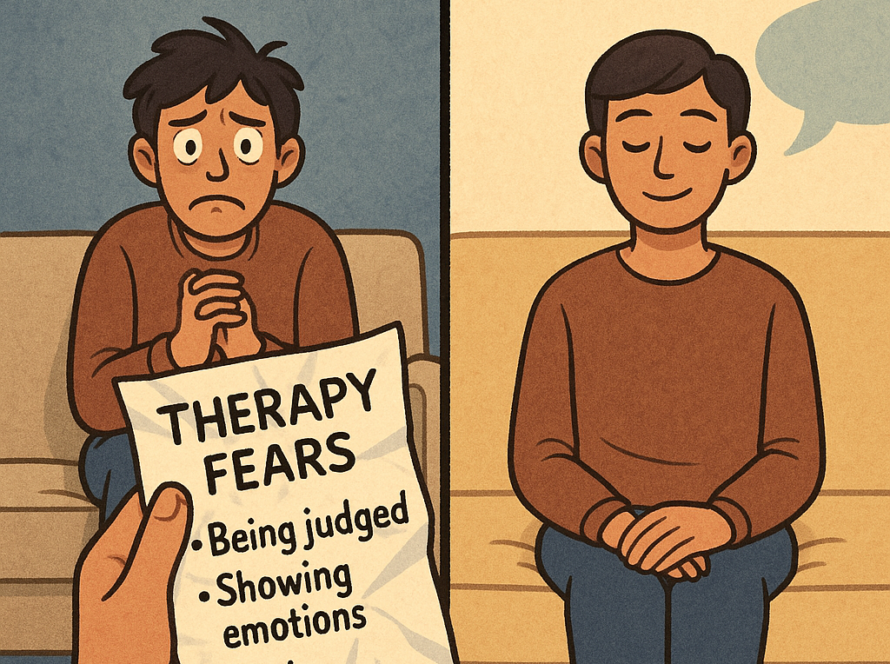The Hidden Crisis No One’s Talking About
In 2023, 1 in 5 adults reported needing mental health care—but 56% couldn’t access it. Welcome to the silent recession: a world where therapy, once a lifeline, is now a luxury reserved for the privileged. While the demand for mental health support soars, systemic barriers are shutting people out. Let’s uncover why this crisis is deepening and how we can fight back.
What Is the ‘Silent Recession’ of Mental Health?
The term describes the growing gap between skyrocketing mental health needs and plummeting access to care. Unlike economic recessions, this crisis is invisible but just as devastating:
- Costs soar: Therapy sessions average $150/hour in the U.S., with many insurers covering just 20% of fees.
- Waitlists grow: 80% of U.S. counties face a severe therapist shortage.
- Stigma persists: Marginalized groups face cultural and financial barriers to seeking help.
The result? Millions are left to navigate anxiety, depression, and trauma alone.
Why Therapy Is Becoming a Luxury
1. The Profit-Driven Healthcare System
Mental health care is often sidelined by insurers. In the U.S., therapists are paid 20-30% less than physical health providers for the same session time, pushing many out of insurance networks.
2. The “Mental Health Parity” Myth
Laws requiring equal coverage for mental and physical health exist—but enforcement is lax. A 2022 report found insurers deny mental health claims twice as often as medical ones.
3. The Burnout Exodus
Overwhelmed by caseloads and low pay, 45% of therapists plan to leave the field by 2025, worsening shortages.
4. Geographic and Socioeconomic Divides
Rural areas have just 1 therapist per 30,000 people. Meanwhile, low-income individuals are 3x more likely to delay care due to cost.
The Ripple Effects of Inaccessible Care
When therapy is a luxury, society pays the price:
- Workforce strain: Untreated mental health issues cost the global economy $1 trillion/year in lost productivity.
- Overburdened ERs: Mental health-related ER visits rose 66% among youth from 2018–2023.
- Cycles of trauma: Children of parents who can’t access care are 5x more likely to develop mental health struggles.
Solutions: Making Mental Health Care a Right, Not a Privilege
Systemic Changes
- Enforce parity laws: Penalize insurers who skimp on mental health coverage.
- Fund public programs: Expand grants for community clinics and teletherapy in underserved areas.
- Train peer supporters: Deploy non-clinical helpers to bridge gaps (e.g., NYC’s “Mental Health Corps”).
Personal Advocacy
- Demand employer support: Push workplaces to cover therapy and offer mental health days.
- Use sliding-scale services: Platforms like Open Path Collective offer sessions as low as $30.
- Normalize conversations: Challenge stigma by openly discussing mental health struggles.
Case Study: How Cuba Prioritizes Mental Health for All
Cuba’s community-based mental health model assigns therapists to neighborhoods, offering free, accessible care. Outcomes? Lower suicide rates and higher life satisfaction than many wealthier nations.
Conclusion: Ending the Silence
Therapy shouldn’t be a privilege. At Unravelling Minds, we’re committed to exposing this crisis and empowering change. Let’s turn the silent recession into a revolution of access.
“Mental health care is not a luxury—it’s a human right.”
Engage With Us:
Have you struggled to access therapy? What barriers did you face? Reach out to us at +91-9310885868 – we’re here for you.



